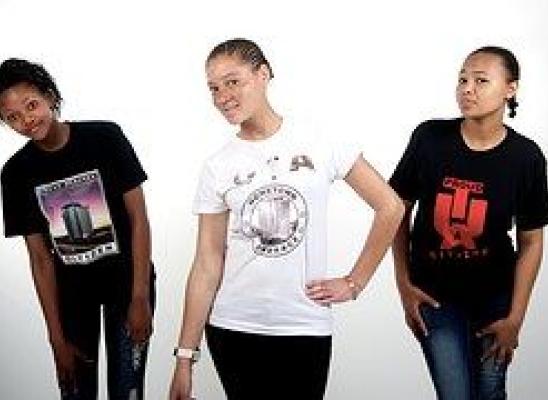Fathers and Sons: The Power In Talking About Trichotillomania Across Generations

Online test
Find out the severity of your symptoms with this free online test
Talking about mental health can often feel like walking on eggshells. It’s a sensitive subject no one likes to talk about. If you’re living with trichotillomania, commonly referred to as hair pulling or “trich”, this “code of silence” can be isolating, confusing, and hurtful. Many people who live with the disorder experience considerable shame and embarrassment, often suffering in silence because opening up feels risky and leaving them open to judgement. And for men, it can be particularly difficult.
Trich is often misunderstood, dismissed as a bad habit or just a quirky behavior. In reality, it’s a complex mental health disorder that can create considerable emotional distress and difficulty functioning. While trich is often thought of as affecting women, men can have trich too, often pulling from the beard or chest area rather than the scalp. And sometimes, finding out that their behavior has a name or that other men have it too is surprising but reassuring too.
Cultural norms around masculinity can make it especially difficult for men and boys to speak up about their feelings or seek support, leaving them to believe they’re the only ones struggling. In many social and cultural circles, there’s an unspoken rule that men don’t talk about feelings and that they should just “suck it up”. Showing emotions may be seen as a sign of weakness. But that isolation can be broken when someone older, especially another male, steps up and says, “Me too.”
The Power of Shared Experience
When a father, brother, or other respected male role model speaks up and shares their own experience with trich, it sends a powerful message of support to others.
This kind of honesty can be transformative. A young boy who has been hiding his hair pulling might, for the first time, feel seen. He may feel relief that what he’s experiencing has a name, that he’s not the only one, and that there’s help.
Men from older generations can benefit too. The understanding and awareness of mental health of today may be new to them. Adult men who struggled with trich as young boys may find healing in being able to talk about their experiences while helping their sons other young family members find their way too.
The Power of Vulnerability
One of the most powerful tools a father can offer is vulnerability. Vulnerability is when we share something about ourselves in a way that connects us to others. It may feel counterintuitive, but showing vulnerability is actually a deep form of strength. When a father says, “I used to pull my hair too,” or “I know how scary it can feel”, he’s not only validating his child’s experience, he’s modeling how to approach the issue with honesty and compassion.
Being vulnerable doesn’t mean having all the answers. It simply signals a willingness to be present, listen without judgment, and affirm the other person’s experience. And that can be even more powerful than offering solutions. A father’s willingness to talk about his own healing journey can help his son see that he doesn’t have to hide or carry this weight alone.
Creating Safe Spaces
A true safe space is one in which people feel safe to express themselves openly without fear of being judged or shamed. It lends itself to a sense of belonging and being seen and heard.
When fathers create a safe, nonjudgmental space for sharing, it helps to ease the fear of talking about “it” and lays the groundwork for trust. These honest conversations can become bridges to deeper understanding and healing. For younger boys, who are still learning to express complex emotions, the presence of a trusted adult who “gets it” is priceless.
Encouraging Help-Seeking and Support
Modeling vulnerability is also an excellent way to demonstrate that asking for help is ok and sign of strength and courage. If a father has sought therapy or learned effective coping strategies, sharing those experiences can normalize seeking treatment and support. And, if he hasn’t, opening up presents an excellent opportunity for father and son to seek help together, reinforcing the idea that “I’m learning too and you’re not alone.”
Breaking the Silence for Future Generations
By talking openly about their experience with hair pulling, men can help break generational cycles of silence and shame. While these conversations can be uncomfortable at first, the impact can be profound. When younger boys grow up in homes where talking about mental health is not taboo, they’re more likely to reach out for support without fear of judgment.
As fathers and sons are able to open up, they are not just healing themselves, they are helping to change the generational and cultural patterns around masculinity, mental health, and emotional vulnerability.
If you’re wondering how to take the first step in sharing your experience, you don’t have to figure it out on your own. A therapist can help you to navigate these conversations in a healthy and affirming way and help you to find a treatment approach that works best for you.
At Trichstop.com, we have a team of expert therapists ready to help you find your path to healing. And online therapy makes getting help comfortable, secure, and convenient. When you’re ready, there is help and hope waiting for you.
References
1. Grant, J. E., Dougherty, D. D., & Chamberlain, S. R. (2020). Prevalence, gender correlates, and co-morbidity of trichotillomania. Psychiatry research, 288, 112948. https://www.ncbi.nlm.nih.gov/pmc/articles/PMC7212053/
2. Christenson, G. A., MacKenzie, T. B., & Mitchell, J. E. (1994). Adult men and women with Trichotillomania. Psychosomatics, 35(2), 142-149. https://www.sciencedirect.com/science/article/pii/S0033318294717886
3. https://www.reddit.com/r/ftm/comments/1gr3lq8/having_trichotillomania_as_a_man/
Online test
Find out the severity of your symptoms with this free online test
Start your journey with TrichStop
Take control of your life and find freedom from hair pulling through professional therapy and evidence-based behavioral techniques.
Start Now



